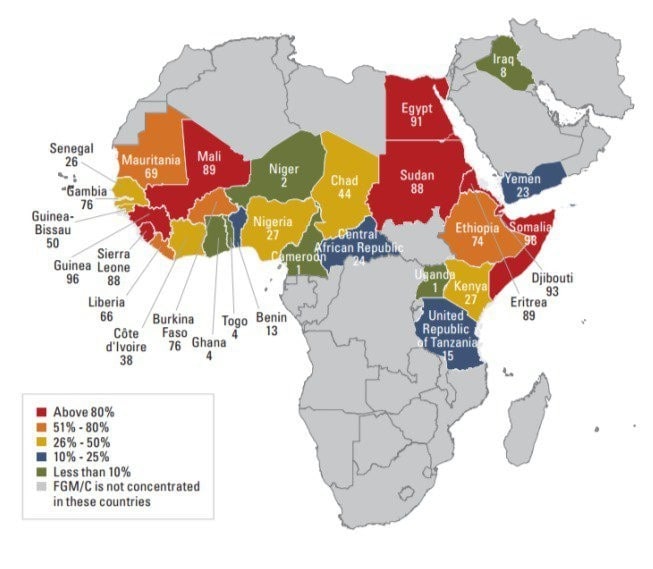The battle for girls' rights is far from over. These 5 charts show just how far

Double trouble ... many adolescent girls are still unprotected and uneducated
Image: REUTERS/Mohammed Salem
Stay up to date:
Gender Inequality
Women the world over are enjoying more and better social, political and economic rights than ever before.
But for many women and girls, especially in the developing world, these gains aren’t filtering through. In poorer countries, where freedom and education are still the preserve of the few, life for many women is a battle for basic humanity; girlhood an ineluctable march towards the menaces of early marriage, sexual violence and lifelong disadvantage.
The problems begins a decade or so into life, says the United Nations, and there’s still too little being done to educate, protect and inform girls as they reach puberty. And yet leaders around the world, from Bill Gates to Ellen Johnson Sirleaf, agree that if we invest in girls at this stage of their lives, we could succeed in ending poverty.
Here are five hardships that the world’s girls are still struggling with, despite international efforts to consign them to history.
1. They’re still getting married off too early
Child marriage isn’t just a girl problem, it’s an economic disaster, write Jean Gough of UNICEF and Yoriko Yasukawa of UNFPA. In South Asia, nearly half of women between the ages of 20 and 24 years old have been married or in a partnership since before they were 18. The effect on the labour market is profound. In Nepal, for instance, the cost of underage marriage was estimated at 3.8% of the country’s entire GDP.

2. Female genital mutilation is still a thing
The practice of FGM, which involves the partial or total removal of a girl’s external genitalia, often with extreme health consequences, has been recognized as a human rights violation since 1993. And yet, 3 million girls and women are still at risk every year, writes Stephanie Thomson at the World Economic Forum. Reported cases are most prevalent in these 29 countries in Africa and the Middle East.

3. So is murder in the name of ‘honour’
It was as recently as 6 October 2016 that Pakistan passed a landmark bill guaranteeing prison sentences for people found guilty of so-called “honour killing”, in which a female relative is murdered for allegedly “shaming” her family, usually by marrying a man of her own choosing. Previously, murderers could be pardoned by the girl’s relatives and evade punishment. While the law has changed, however, attitudes may take longer to catch up. In 2011, 4 in 10 Pakistanis said "honour" killing is sometimes justified. In 2015, 1,096 such killings were reported.

4. The violence doesn’t end there
A very high number of women and girls are still victims of sexual violence, reports UNICEF. Around 120 million girls under the age of 18 – just over 1 in 10 – have been raped or experienced other sexual abuse in their lifetimes. And there is little protection after they enter marriage: while 125 countries now outlaw domestic violence, there are still 603 million women who live in nations where domestic violence is not a crime.

5. They’re missing out on school
There are 31 million young girls in the world currently going without an education. The reasons are various: poverty, cultural barriers, early marriage or even something as simple as no separate latrines for boys and girls at school. According to research from Girl Effect, 1 in 10 girls in Africa miss class or drop out of school when they get their periods, because of a lack of basic sanitation.

Don't miss any update on this topic
Create a free account and access your personalized content collection with our latest publications and analyses.
License and Republishing
World Economic Forum articles may be republished in accordance with the Creative Commons Attribution-NonCommercial-NoDerivatives 4.0 International Public License, and in accordance with our Terms of Use.
The views expressed in this article are those of the author alone and not the World Economic Forum.
Related topics:
Forum Stories newsletter
Bringing you weekly curated insights and analysis on the global issues that matter.
More on Equity, Diversity and InclusionSee all
Harrison Lung and Hatem Bamatraf
May 7, 2025
Zainab Azizi
April 9, 2025
Jon Jacobson
March 27, 2025


